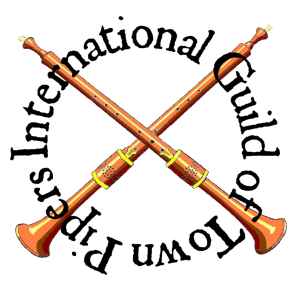Exeter Waits
As quoted in Christopher Marsh’s book, “Music and Society in Early Modern England”
(Cambridge University Press, 2013. ISBN 1107610249, 9781107610248.)
EXETER
This reference is undated: The waits had separate winter robes and summer tunics.
Exeter Waits
1408
In Richard Izacke’s “Memorials of the City of Exeter”, it is stated, under the date 1408, “The musical weights were first received and entertained in this city”. Subsequently it would seem that they were not only entertained, but retained, though we see no more of them till the year of the Restoration, 1660, when it is recorded that “the musical waits (hereof), after many years sequestration were restored to their places and pensions.”
From: Notes and Queries (1886), Enirolac in Notes and Queries.
1590
The shall vppon euerye pryncipall feast Daye attende the mayor vnto St. Peters Churche and goe before hym too & too [there were 4 of them] next before the Sergeantes.
The shall trewlye & in salffitie redelyver at all tymes when the same shalbe required of theym suche settes & Noyses of Instrumementes as they have of the Citie aswell Recordes as others Bought at the Cities charges … Whiche sayde Instrumentes ar as followethe A Doble Curtall A Lyserden, Too tenor hoyboyes, a Treble hoboyes A Cornet A sett or case of ffower Recorders Bowght by mr. Nicholas martyn.
http://www.exeter.gov.uk/index.aspx?articleid=2910 says:
“The waits were the city Chamber’s own band of musicians, who wore these chains over fine cloaks provided by the Chamber. They performed in the streets, and outside the Mayor’s house at Christmas; they also celebrated coronations, victories and anniversaries. Three of the silver waits’ chains were made in the 15th century; they are believed to be those re-made in 1476-7 at a cost of 14s (70p); the fourth is of the early 16th century. Each chain consists of alternating letters X and R, each enclosed in a circle and joined to its neighbours by rings. They are now amongst the city’s greatest treasures. In 1957 a replica set was made, since the originals are irreplaceable. These are now worn by the Mace Sergeants.”
There’s a picture of a badge and part of the chain athttp://www.exeter.gov.uk/media/image/2/j/waits_1.jpg
http://www.worldmilitarybands.com/The%20Waits.htm says:
“Three of four beautiful silver waits chains, believed to date from 1476, are comprised in Exeter City regalia.”
“John Hooker (1525-1601 ), the town-clerk historian of Exeter, left a valuable manuscript ‘Description of the Citie of Exeter’, in which he gives the composition of the waits band in 1575 as “A Doble Curtall, a Lyserden, Two Tenor Hoyboyes, a Treble Hoyboyes, a Cornet, a set or case of fower Recorders”. “
“In 1602 the Exeter Waits agreed to buy a set of “vyalls”.”
“At Exeter in 1602 the four waits each received yearly wages and their accustomed livery. A curious privilege allowed one of the waits, with consent of his fellows, to keep at his sole cost two boys trained up in music to join with the waits. “
and
“The Municipal Reform Act Of 1835 led to the disbanding of the waits in nearly every case but as at Exeter and elsewhere, financial stringencyarising from the Napoleonic wars had led to the waits’ dismissal as early as18l5.”
http://genuki.cs.ncl.ac.uk/DEV/History.html gives the following reference:
Draisey, John. Discordant Notes or A Broken Consort; Exeter’s Waits in 1631.
In Devon Documents (ed. T. Gray). Tiverton: Devon & Cornwall Notes &Queries, Special Issue (1996) [ISBN 0925836203] pp.62-66.
1700-1750
Exeter employed four waits, who were paid quarterly. Exeter City Act Books include details of hirings and firings.
1723
Payment voucher signed by the four waits – Thomas Slade, Neville Harper, Francis Wellington and William Brooking.
1722-30
Francis Wellington was paid as a wait between 1722-28, andAnnual benefit concerts were held for him annually from 1728-30.
28th April 1728
“For the BENEFIT of Mr. Francis Wellington: AT the large room, at the Half-Moon, in the High-Street, EXON, Wednesday April the 3rd.
1728
(Being the Assize-Week) will be held a CONSORT of Vocal and Instrumental MUSICK, taken from the most celebrated Masters. N>B> Tickets may be had at Mr. Score’s Bookseller, Moll’s Coffee-House, Rummer Tavern, and at the Place of Performance, at 2s.6d. each. Beginning at Six a Clock.”
Names of Some Exeter Waites
Source: Chevil, Elizabeth Jane (1993). “Music Societies and Musical Life in Old Foundation Cathedral Cities 1700-60” (PhD Thesis, King’s College, London).
Waits
Thomas Slade (1724)
Neville Harper (1724)
Francis Wellington (1722-28)
William Brooking (1724)
Shadrach Radford (also city trumpeter) joined the waits in 1728
William Waldron joined in 1729
Richard Radford joined in 1744
Portman Radford joined in 1749
Richard Radford (1758)
Portman Radford (1758)
William Score (1758)
1765 – Richard Radford was dismissed for misconduct but reinstated a few weeks later after apologising.
1728/29/30 – Annual benefit concerts were held for Francis Wellington after he retired, at the Half Moon in 1728, the New Inn in 1729 and the Bear Inn in 1730.
Waits’ wages were £4 each in 1724, and £8 each in 1758.
